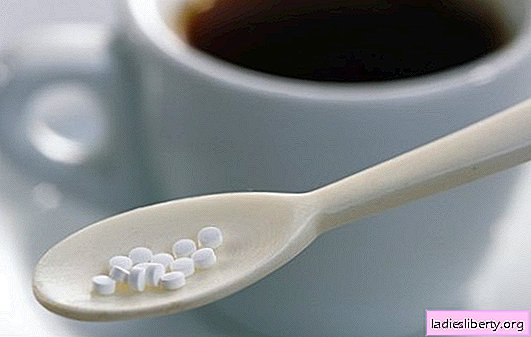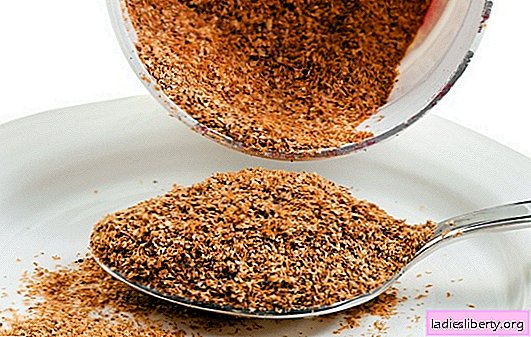
Breastfeeding is a natural physiological process that proceeds normally in almost all young mothers.
In the first few weeks after the appearance of the newborn, lactation becomes stable and regular.
But sometimes milk disappears.
Fortunately, this happens in 3% of cases, which is usually due to serious reasons, and only then is it very difficult to reverse this process.
But more often, Mom just thinks that she has lost milk or is not enough, in her power to establish the feeding process on her own.
The main reasons why milk is missing
A loving mother seeks to give her baby the best nutrition so that he is healthy and strong, gaining weight normally. Therefore, sometimes, especially the mothers of the first-born, are too anxious and suffer, if for some reason they see that milk is not enough. Although we repeat: often mom experiences in vain.
But it happens that there really is no milk - it disappeared completely or almost completely. Termination of lactation can cause:
• Hormonal imbalance;
• Consequences of cesarean section;
• Stress;
• Large physical exertion of the mother;
• Psychological discomfort, quarrels with her husband;
• Introduction of complementary foods when it is not needed;
• The very unwillingness of the mother to breastfeed;
• Irregular attachments, a long night's sleep, separation during the day, an increase in the interval between feedings, the use of a dummy.
Now it is customary to feed the baby on demand, but, as a rule, the baby eats the first month every 3 hours, later the interval increases. The child can eat more and eats up. Do not forget about the early morning hours and be sure to feed the baby in the interval between 3-8 hours of the morning.
Maternal illness can cause lactation to stop. If you have to take medicine, the child himself stops taking the breast. Sometimes, after a high temperature, milk “burns out”. Therefore, it is very important for a nursing mother to take good care of her health.
How do you know if milk is really missing, is it scarce or not enough?
The baby gains weight intensively only in the first months, and then the increase slows down. No need to compare your child and your neighbor: after all, weight gain is strictly individual, and even the lower limit of the weight norm for a given age is the norm.
In the first weeks, when the establishment of breastfeeding is just happening, the breast becomes abruptly filled, filled with milk, and the woman feels it. Over time, when the baby already eats by the hour, the breast is filled with milk when necessary. An inexperienced mother might think that her milk is lost.
If there is still a suspicion that there is not enough milk in the breast, you need to check this.
Several signs should match:
1) The child gains weight less than 150 g per week in the first six months. From 7 to 9 months, the gain decreases - here already a month the child gains about 350 g. At the age of 10 to 12 months, the weight gain is 270 g per month;
2) After each feeding, the child continues to search for the chest with his mouth, cries, makes frequent movements with his mouth. When there is enough milk, the cheeks are inflated and move slowly;
3) The kid urinates a little and poop. The amount of urination is quite difficult to calculate, but the daily weight of urine is possible. To do this, you need to compare the mass of diapers used and the same amount of dry per day. If the weight of the wet is at least 400 g more, do not worry. The kid receives the necessary food.
If milk really disappears - what to do
First off, do not panic. A necessary task now is to draw up the correct feeding regimen. If you feed the baby according to the first requirement, the body will begin to produce hormones reflexively. Oxytocin is formed during stimulation of the nipples, and it is responsible for the contraction of the uterus and the removal of milk from the chest ducts. A chain reaction occurs - the more often you apply to the breast, the more milk is released.
Avoid stagnation - the child must suck out completely and back milk so that it does not accumulate in hard-to-reach places. Get used to having the baby as comfortable as possible: for example, in a sitting position, when you hold the child in your arms, his chin should be directed to the side where possible stagnation is. As a rule, such places are closer to the armpits. In this position, the child will suck the milk correctly, and there will be no need to express.
Massage your chest. You can find video massage courses on the Internet. It’s even better to consult a breastfeeding specialist, if available in your locality.
So that milk does not disappear, try to be calm, happy mom. Enjoy motherhood! Do not pass all problems and stresses through yourself. After all, you must grow up a healthy, strong person!
Get enough sleep. If your sleep was not disturbed at night, take time to relax during the day.
Eat properly and fully. Now is not the best time for diets. If you are breastfeeding, the metabolism is accelerated, all organ systems are actively working. A few extra kg gained during pregnancy will gradually and imperceptibly leave. Do not eat anything spicy, salty, fatty, fried, limit sweets and allergenic foods. Such a diet of a nursing mother will not allow to gain excess. These are the basics of proper nutrition.
Provide the body with all the vitamins and minerals. Eat enough protein, natural fats and oils, carbohydrates, eating natural foods. If possible, fruits and vegetables are better to choose domestic, "from the village."
Here is a list of products that increase the amount of milk:
• New milk;
• potatoes;
• plums;
• Grapes;
• Chives;
• Salad;
• Dill;
• Carrot;
• Herring;
• Walnuts;
• Brown rice;
• Mixtures of type "Baby" for nursing;
• Tea with milk.
Drink plenty of fluids, but don’t drink too much, especially in the first 3 days after giving birth.
What to do if breastfeeding is not possible
If, due to circumstances, your child still needs supplementary feeding, you should choose the mixture correctly. In such cases, experts recommend a mixture as close as possible to breast milk so that the child does not experience metabolic disorders, allergic reactions, skin problems and digestion. Closer to the composition of human milk, adapted mixtures of goat milk with beta-casein protein, for example, the gold standard for baby food - MD mil SP Goat. Thanks to this mixture, the baby receives all the necessary substances that help the children's body to properly form and develop.
Milk disappears - folk remedies, herbal and tea treatments
For problems with feeding, traditional medicine can help. Before using herbal teas and fees, a doctor’s consultation is required!
Folk remedies that have proven themselves in nursing mothers:
1. Infusion of chamomile - take 1 glass three times during the day;
2. Special teas and dietary supplements for lactation, which are sold in the pharmacy along with instructions;
3. Infusion of medicinal sweet clover herb (a tablespoon is poured into a glass of boiled water). A glass to drink during the day;
4. Infusion of dandelion roots. There is already a teaspoon in a glass of water, drink throughout the day;
5. Infusion from medical collection No. 1, which includes:
Anise, dill, nettle leaf, clover grass. This collection take a tablespoon in a glass of boiling water. A glass to drink in a day;
6. Collection No. 2
Oregano herb, seeds of anise, dill, fennel. Here a teaspoon goes into a glass of boiling water, but you need to drink 2-3 glasses of infusion per day;
7. Collection No. 3
Melissa leaf, fennel seeds in equal proportions. Pour a teaspoon with a glass of water, drink 2 glasses a day;
8. Infusion of caraway seeds - an incomplete tablespoon in a glass of water.
Apparently, milk production improves dill, caraway seeds, fennel, therefore these seasonings can and should be added to food, there is bread with caraway seeds. Melissa can be grown on a windowsill and added to tea.
Thus, if mom has a problem with breast milk, and it is real, it is important to find out the reason why this happened. Next, try to eliminate it and take all measures to resume lactation.
Usually, 3-5 days are needed to fix the problem with lactation. These days you should not worry, feel guilty. Yes, breast milk is a valuable product that is important for the immune system, and the sacrament of feeding gives an emotional connection with the baby. But if milk cannot be returned, it doesn’t matter. You can choose a good mixture. And remember that for your child you are the best mother in the world, the main person for him for life.











